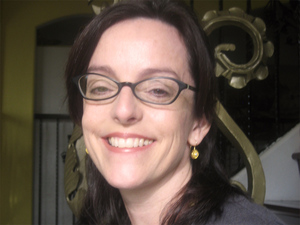Dr. Suzanne Mitchell Featured on NPR: Crusty Patient Helps Shape Doctor’s Career
Two years ago Dr. Suzanne Mitchell’s career seemed stalled. Her research wasn’t going anywhere. And the hectic pace of her patient-care practice left her wondering every day, “What am I doing here?” To give herself time to take stock, she took a part-time job with an elder services agency in Gloucester, Mass., an old fishing port north of Boston. She saw her first patient at home. “The door opened and I saw this older gentleman with his dog beside him, defending him fiercely,” she remembers. His name was Dick — and he most definitely didn’t like doctors.
(Listen at NPR)
 “He was an old New England salt, with a beard like a Gloucester fisherman,” she says. “All he needed was a pipe and a hat and a peacoat. A little bit gruff. Very independent-minded: ‘If it needs to be done, I can do it myself.’ ”
“He was an old New England salt, with a beard like a Gloucester fisherman,” she says. “All he needed was a pipe and a hat and a peacoat. A little bit gruff. Very independent-minded: ‘If it needs to be done, I can do it myself.’ ”
He Vowed Never To See A Doctor Again
Dick had run his own heating-supply business until he got very sick with an intestinal problem. He bounced in and out of intensive care and a rehab hospital. It wasn’t a good experience.
And then he was diagnosed with multiple sclerosis. By that time, he was so fed up with medical care that he vowed never to see a doctor again.
“I found [it] astonishing that anyone could manage to avoid the health care system for 20 years after being diagnosed with multiple sclerosis,” Mitchell says.
But Dick was having problems walking; he was starting to fall a lot. And his wife had health problems of her own, so she couldn’t take care of him as she used to. That’s why they finally called for help.
“I kind of thought I would go in there and maybe help Dick get some treatment for his MS — which he had no interest in,” Mitchell says. “But what happened was we did some blood work.”
The routine blood tests showed anemia. So Mitchell did a further workup to figure out why, ordering X-rays and a CT scan. That scan showed a tumor in Dick’s kidney. She persuaded him to see a specialist, who decided to check the tumor again in a few months.
A Turn For The Worse
Meanwhile, Dick’s MS got worse. And the cancer grew. After a bad weekend, his family summoned Mitchell for another house call. When she arrived, she knew things had taken a serious turn for the worse.
“I looked at him from across the room and I just knew he was really in a crisis,” Mitchell recalls. “I walked over and knelt down … and I looked him in the eye. And I knew in my heart that I was taking a chance. And I said, ‘Dick, you need to go to the hospital. You need to go to the hospital.’ He looked at me and said, ‘OK. If you think I need to go to the hospital, I’ll go.’
“I knew then that he had placed his trust in me,” Mitchell says.
But once he was in the hospital, things didn’t go well. The cancer had spread. The other doctors saw Dick’s condition as dire, and they wanted to treat his kidney cancer. Dick had other ideas. He just wanted to go home.
Mitchell says she began to feel she had “cast him adrift on a raft in a storm.”
“He was … very ornery and unhappy with me,” Mitchell says. “And he didn’t trust me anymore. He just kept telling me to bring him home, bring him home.”
Mitchell realized she’d made a big mistake by putting Dick in the hospital. But that decision turned out to be incredibly difficult to reverse. Some family members didn’t think they could care for him at home. A medical colleague questioned her judgment.
“My colleague asked me if it was right for me to force this on the family, and I had to wonder if I was doing the right thing on their behalf,” Mitchell says.
But she kept pushing for weeks to get him home. Eventually she prevailed.
“We brought him home on Christmas Eve, and all of his family was there — his children, his grandchildren, his dog, his wife,” Mitchell says. “It was the first time he smiled, I think, in months.
“And six hours later, he passed away — at home.” It was where he wanted to be all along.
A Lesson Of A Lifetime
Mitchell says Dick taught her the difference between medical treatment and medical care.
“To be willing to follow your patient to where they want to go is an uncomfortable journey, and it changed me forever,” she says.
She’s no longer afraid, she adds, “to allow my patients to take me on their journey. Whatever expertise we have, the patient holds the wisdom of their life. And we need to be with our patients — really be with them.”
Mitchell often tells the story to medical students and young doctors in training. Sometimes they say, “How will we have time to get to know our patients?”
Her response is: “How can you afford not to? How can you afford not to connect to your patient before anything else happens?”